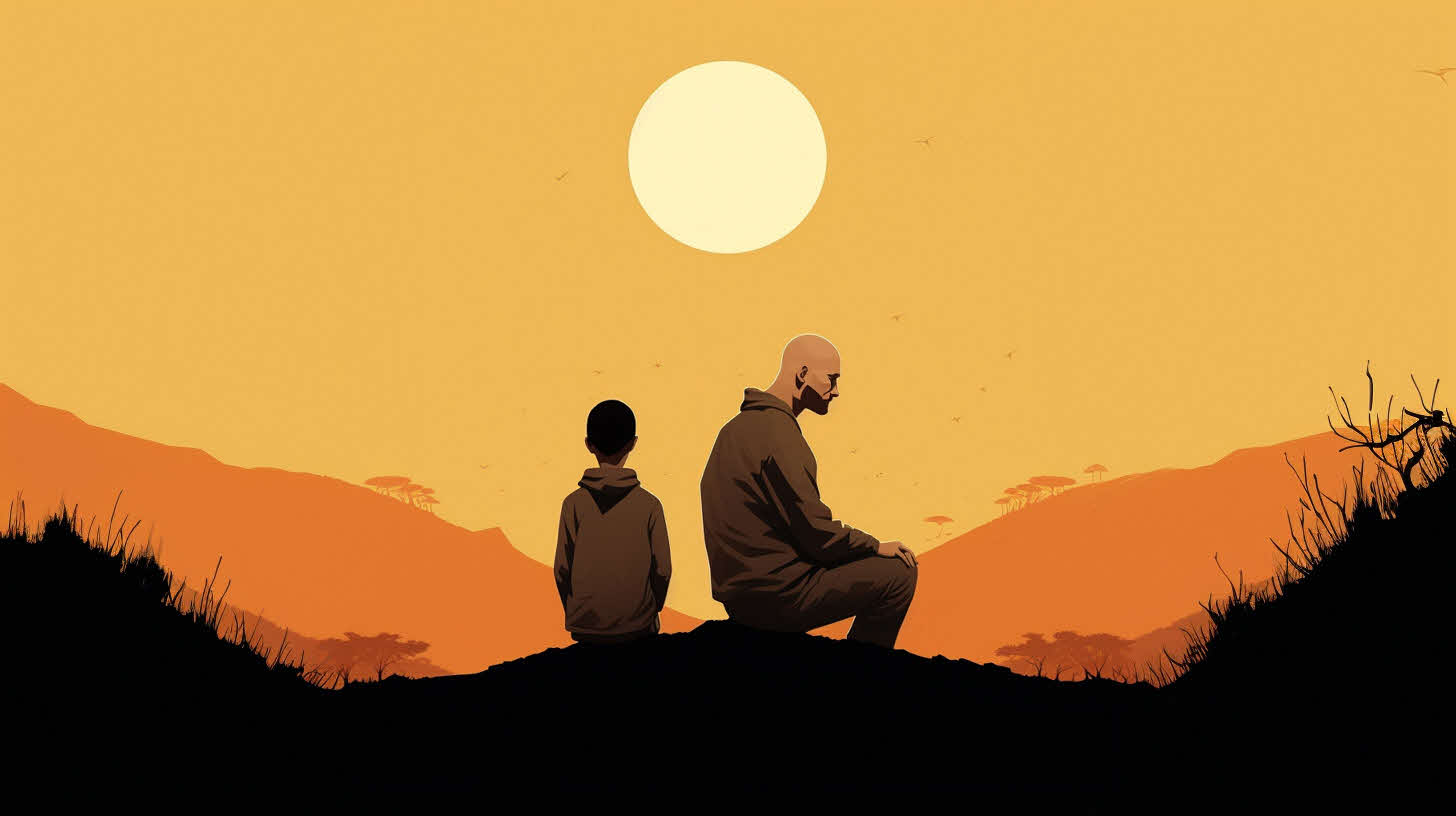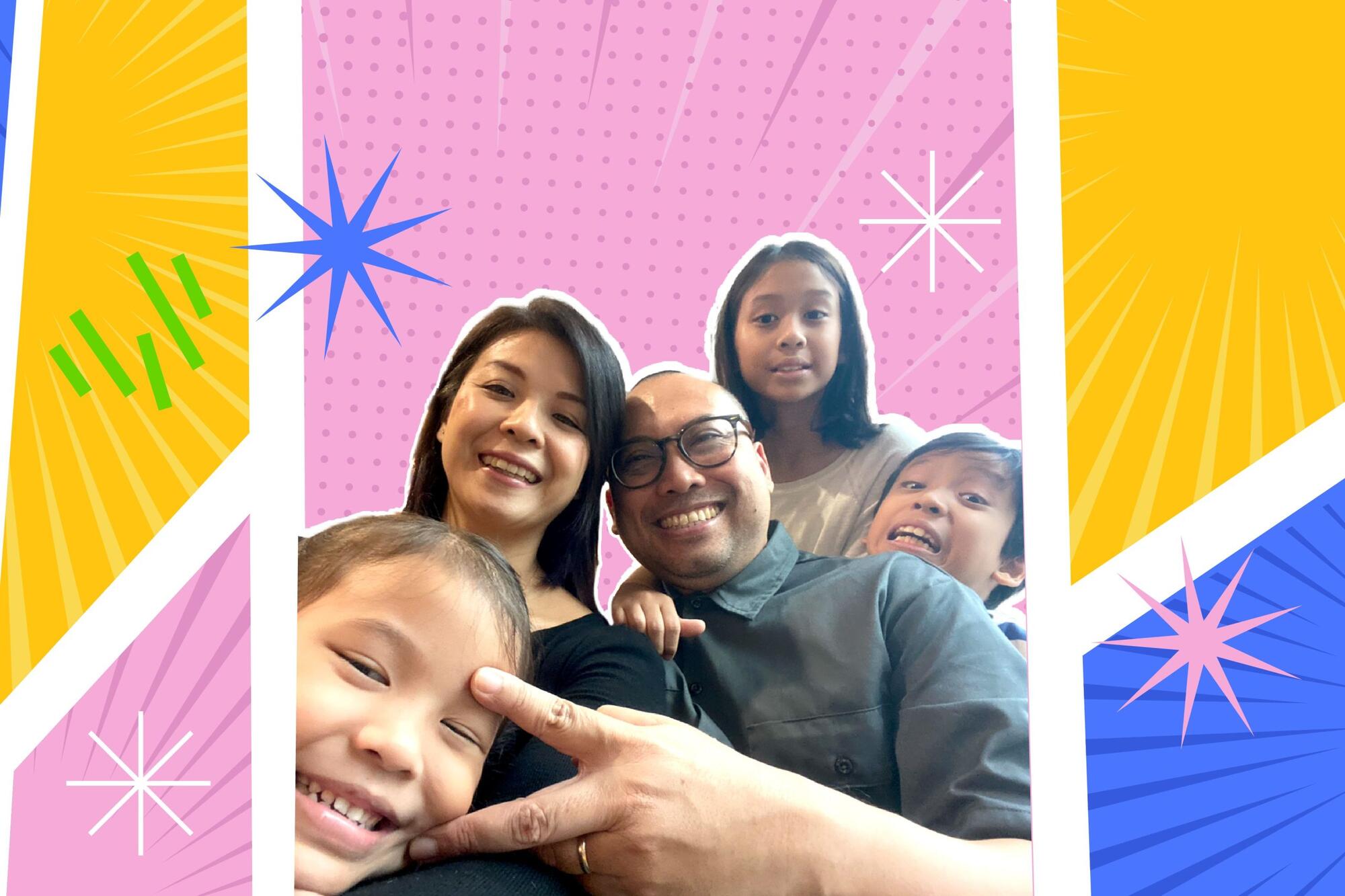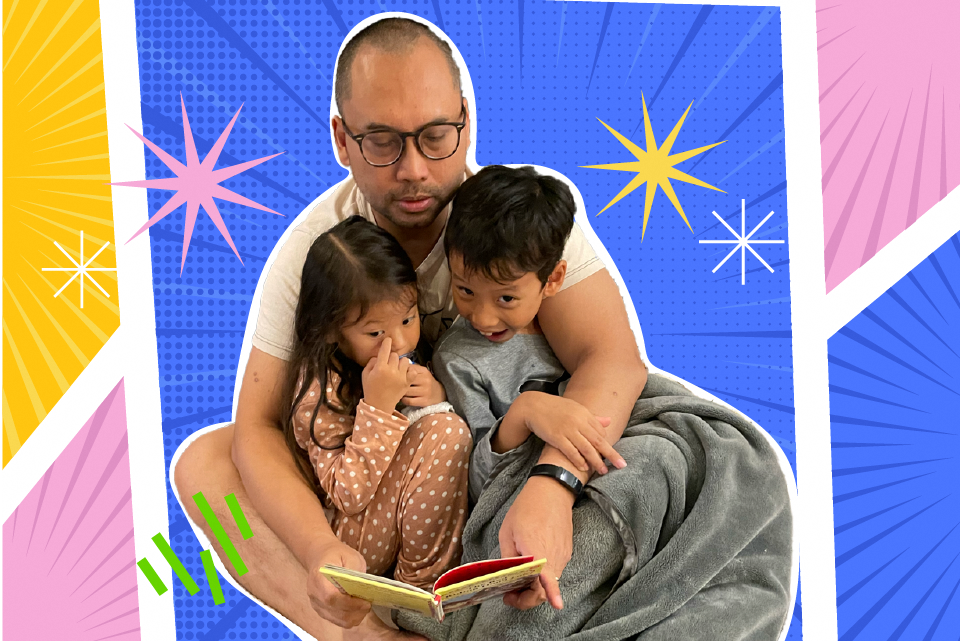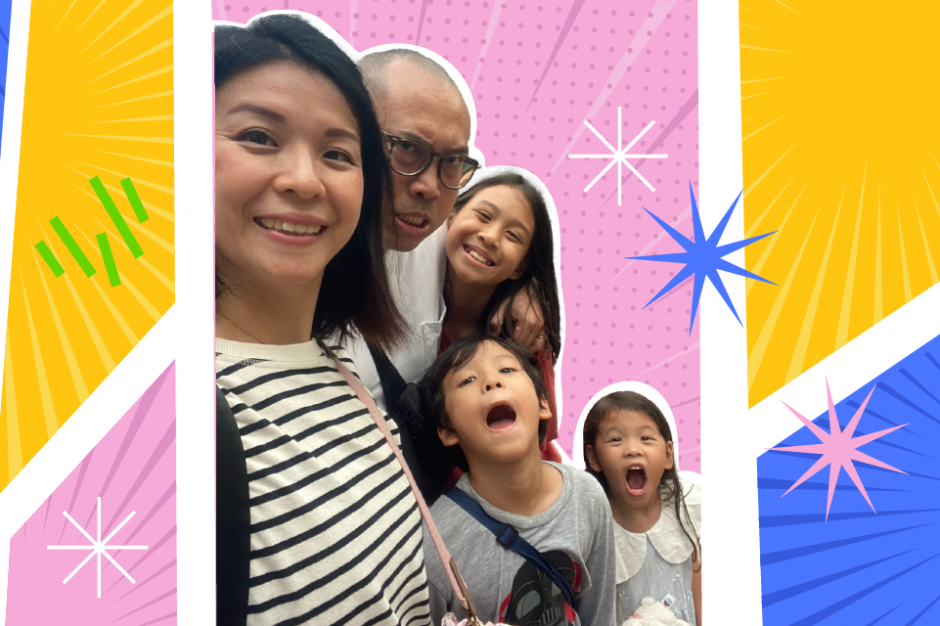The No. 1 rule to learning effectively – and why parents should give their kids more space
13 Sep 2023
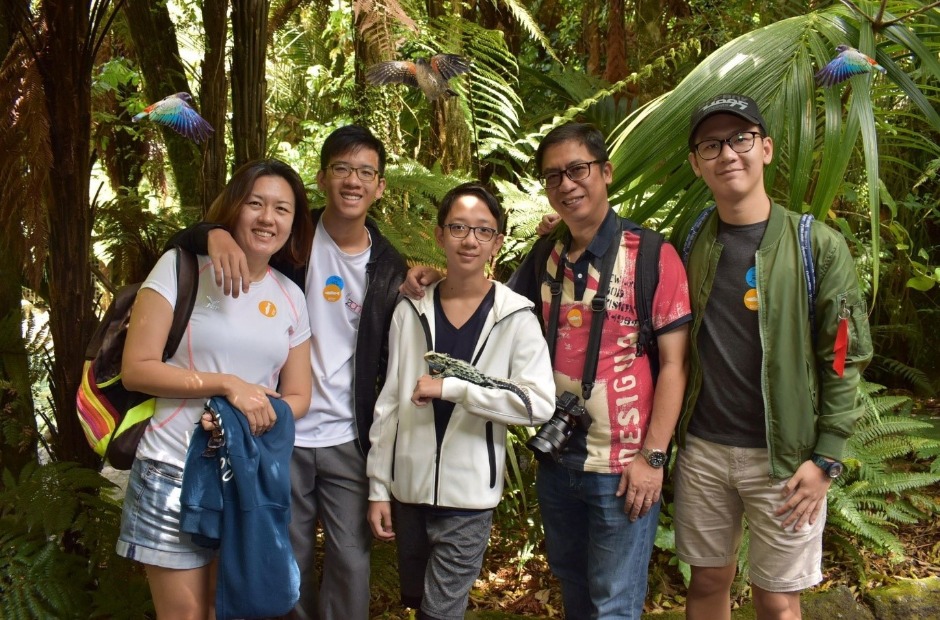
NUS lecturer Katy Kan knows a thing or two about learning. She teaches business communication at the university’s Centre for English Language Communication, and has come a long way from barely passing her English exams in school. After more than 20 years of teaching tertiary and adult students, she has answers on how to get knowledge to stick.
Dr Katy Kan teaches adult learners, encouraging them to work those brain cells even when their hair turns grey. But there was a time when she herself wasn’t sure she wanted to open a book ever again.
The communications lecturer and management consultant grew up in a Chinese-speaking family and used to struggle to pass her English tests. “I got through each stage of my education by the skin of my teeth, doing badly at junior college, failing accounting at university, just not your usual success story,” rattles off the articulate 50-something, sounding very different from the girl she describes she was.
Her turning point came when she saw the point in improving her language ability. She didn’t care to improve her English grades per se – but she did care that a good grasp of the language could open doors to greater knowledge and opportunity. After she joined those dots, she started tuning in to what her teachers were saying, watched English TV, and even took classes on pronunciation. The secret to learning effectively, she says, lies in intrinsic motivation.
“There is no point forcing someone to learn,” says the mother of three sons, who bounces easily in conversation on anything from Malcolm Gladwell’s thin slicing theory to the calming effects of crochet.
“When I see meaning in what I am learning, it drives me to learn.”
After nabbing a PhD in critical discourse analysis and working in several sectors – banking, marketing, healthcare, telecommunications, and now education, as a lecturer at the National University of Singapore’s Centre of English Language Communication – she decided to free up time to start a management consultancy in a new area of learning that excites her: sustainability reporting. Her reason is simple: SMEs need more help than corporations in this area.
It’s new but it’s not daunting.
“When there’s a desire for the knowledge, to be equipped for a task, you’ll figure things out,” she affirms. “You’ll pay attention to the information that helps you make sense of what you want to know. That’s when learning comes easily.”
‘Learn and you’ll get more out of life’
Now in her 50s, Dr Kan is convinced that lifelong learning isn’t just a nice-to-have but an essential outlook on life. Being curious and adaptable helps us to stay relevant and cope with the fast-changing demands of a highly disruptive age, where knowledge can get outdated quickly and people become redundant, she says.
“I found this to be true in the 1990s, when our ministers were urging us to never stop learning, even after university, what more now?”
It’s also her way of getting more out of life, she adds. “Learning is synonymous with embracing life. It’s a posture, a disposition and a mindset. To give more of yourself, you need to have new perspectives to share or have a more informed perspective of the changing world. That in itself is very satisfying.”
Indirectly, she has been setting this example to her three sons aged 19 to 24. “My sons have said that seeing me learn makes lifelong learning a norm, so it becomes normal to want to continue seeking knowledge. So there’s no preaching. They see and it’s caught, not taught.”
After taking up marcoms positions in the corporate world and teaching communications full-time at a polytechnic for five years, she wanted to learn more about the pedagogy of language teaching, and pursued a Masters in Applied Linguistics.
When her Masters supervsior suggested she pursue her doctorate studies (she used her SkillsFuture credits to pay for UX/UI and digital marketing modules in one of the semesters), she agreed.
“I appreciated going through the rigour of writing a thesis and sharpening my thoughts and thinking skills.” With the PhD, “I finally had the words to describe what I want to describe. In the past, I had the desire, but everything seemed so abstract, and I couldn’t articulate myself as succinctly or convincingly.”
“It’s not about getting certificates or hitting milestones – it’s about the process,” she elaborates. It’s something she is glad to see in her children. “They also enjoy the whole process of solving maths and science problems. And when they get the answer wrong, they recognise the gap in knowledge and then try again. What they don’t enjoy is the negativity implicit in feedback such as, ‘This isn’t good enough as compared to the other person.’”
Husband Edmond and her sing a similar tune when parenting and dealing with their children’s roadblocks and disappointments. “We have said ‘it’s okay, let’s try again’, and ‘if this is your best, good, we can accept it. Let’s look at the choices ahead of you’.”
For Dr Kan, she finds that this pragmatic approach works in her adult learners, versus comparing against norms and what everyone else is accumulating.
She receives students who are doing well in their fields but put their “income-generation phase” on hold to fill gaps in their learning; any advancement that comes after is never promised but often a natural outcome because of the personal growth they experience from such pursuits.
“I had a student who understood that up to a certain level, technical qualifications can only help so much. He didn’t know how to manage people, so he went back to undergraduate school to pick up management skills. To reach this point of reckoning and make such decisions takes humility and self-awareness,” she says. “I’m in awe of such students.”
What can make lifelong learning easier?
1. Learn beyond the brief.
“There are students who were very studious and collected cert after cert but when they went out to work, realised that gains are not made by staying still in the same field,” she explains. “How do you think out of the box if you grew up in a box? Without diversity, differentiation and ability, you’re stuck, you cannot change lanes, you cannot stand out.”
She suggests that students take the cue from school but not stop there. At any point in life, you can attend webinars, workshops, watch videos online, or ask friends to teach you a skill, just to further yourself.
“Don’t be restricted by emphasising on grades and passing exams. There’s a whole world of amazing learning outside the pages of textbooks and so many modes of learning possible. This means that this thirst for learning should continue well beyond the school years and definitely outside of the classroom.” Learning progressively also has this perk, she says: You won’t burn out trying to keep up overnight.
2. Own the journey
When choosing career and learning paths, Dr Kan believes in learner’s autonomy – she encourages parents to let their children have a bigger say in their choice of school, courses and careers.
“Ownership in decision-making is important. The decisions should ultimately be theirs, or their heart won’t be in it. But because our children trust us, they will still come back to us for our opinions.”
When Dr Kan’s youngest son toyed with the idea of being a career boxer at 16, she couldn’t see viability in the profession but didn’t shut the idea down. She and her husband found a course in the polytechnic – sports science – that could meet his sporting interest and further his interest in numbers, while he enrolled in a mixed martial arts academy.
When he was older, she spoke to him about considering related careers, such as managing a boxing team or running a gym business. The final decision rests with him, she says. “They have their whole life to slowly navigate their own more scenic and untravelled road.”
3. Have mentors
People who have gone before you can show you the paths and pitfalls. “Find mentors you can trust who can be in your inner courtyard,” says Dr Kan. “They would likely be older than you and have more life experience, so they can offer more holistic advice than take a piecemeal approach.”
They may also point out ways for you to learn without putting everything on hold, such as micro courses they took or soft skills that you need, because they are more familiar with you as an individual than, say, a career advisor.
Of course, just being able to spar with someone sharper can always polish up your thinking and enrich your conversations.
4. Acknowledge your gaps.
“I realise my words have no impact”. One of Dr Kan’s students shared this with her when asked why she was returning to school after years in the workforce.
Dr Kan has surprising advice on how one can pack more punch at work. “If the substance of what you say is in question, you may not want to just take a communications module to fix your verbal skills,” she says. “There may be an issue with your work experience.”
To the student in question, she discussed about how she may need to bolster her abilities and add to her bank of knowledge and skills, which she could then synthesise on her way to her desired position. The confidence from the gains will show in how she carries herself.
Other gaps that are difficult to acknowledge but which hold people back are inflexibility and the lack of people skills, such as connecting and managing people.
5. Learn from young people
The beauty of the current generation of young people is how they connect dots not in a linear way, but as a network, says Dr Kan. They are less enamoured of set paths and public expectations the way their parents were.
For her younger students, “the conversation has moved from ‘Where’s my A?’ towards more formative learning. Instead of giving them grades to track their progress, we give them detailed feedback”.
To her older students, she urges them to “abandon the idea of a linear checklist”. “Knowledge is cumulative and none of it goes to waste. One day, an opportunity will come for all the knowledge to come in useful.”
So could it be that it’s the parents who need lessons on lifelong learning more than their children? Dr Kan laughs in agreement. “The more we learn, the less judgemental we become. Let’s not be afraid to make mistakes, and just learn for the sake of learning.”

